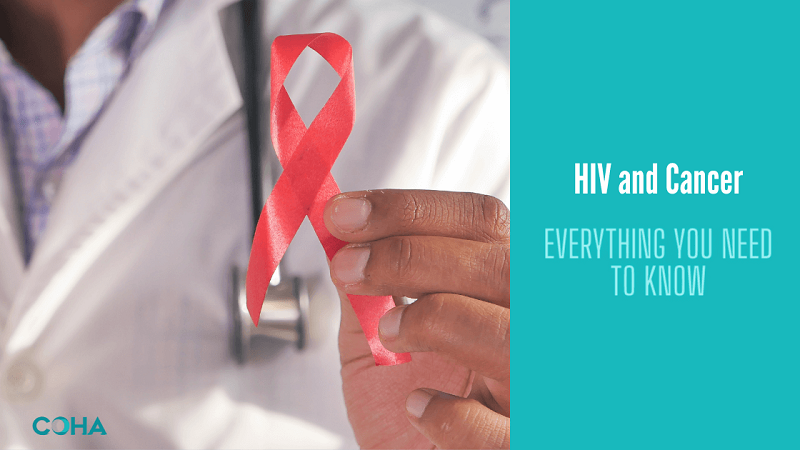


Human Immunodeficiency Virus (HIV) is widely known for its impact on the immune system, progressively weakening the body’s ability to fight off infections and diseases. Over time, untreated HIV can lead to Acquired Immunodeficiency Syndrome (AIDS), increasing susceptibility to many health complications, including certain types of cancer.
People living with HIV have a higher cancer risk than the general population due to immune suppression and other contributing factors. Understanding this connection is essential for early detection, appropriate HIV/AIDS and Cancer treatment, and adopting measures to reduce cancer risk effectively.
HIV primarily targets CD4 cells, or T-helper cells, a key part of the immune system. The immune response becomes severely weakened as the virus multiplies and destroys these cells.
A compromised immune system struggles to detect and eliminate abnormal or precancerous cells. This dysfunction makes it easier for cancerous growths to develop and go unnoticed until they reach advanced stages. In addition, many symptoms of HIV/AIDS, such as chronic infections or persistent fatigue, can mask early cancer signs, delaying diagnosis.
Several biological and environmental factors influence the increased cancer risk in HIV patients:
These are cancers that occur more frequently in people with HIV and are used as markers for the progression to AIDS:
These have become more common due to longer life expectancy with improved HIV/AIDS treatment:
Antiretroviral therapy (ART) is the cornerstone of HIV treatment. It helps control the virus, rebuild the immune system, and reduce systemic inflammation, thereby lowering the risk of many HIV-related cancers.
Key benefits of ART include:
Adherence to ART is essential for managing both HIV and related health risks.
While not all cancers are preventable, there are many steps people with HIV can take to reduce their risk:
Living with HIV today does not mean you cannot lead a long and healthy life. With proper treatment and a proactive approach to health monitoring, many individuals maintain a good quality of life.
Close collaboration between infectious disease specialists, oncologists, and primary care providers is key. Support services, mental health care, and patient education are essential in managing long-term health and wellness.
The connection between HIV and cancer is well established, mainly due to a weakened immune system and increased vulnerability to certain cancer-causing viruses. However, with consistent HIV/AIDS treatment, regular health screenings, and a proactive lifestyle, this risk can be significantly reduced.
At Chesapeake Oncology-Hematology Associates, our team is dedicated to helping individuals with HIV understand and manage their cancer risk. Through personalized care plans and ongoing monitoring, we ensure that each patient receives the attention and support they deserve.
Contact us today to begin your personalized prevention, early detection, and long-term wellness plan. Take charge of your health by scheduling a check-up, staying consistent with your HIV treatment, and speaking with your provider about cancer screenings tailored to your needs.
1. Is cancer more aggressive or more challenging to treat in HIV-positive patients?
Some cancers can behave more aggressively in immunocompromised individuals. However, early diagnosis and proper treatment can significantly improve outcomes.
2. Are transgender individuals with HIV at higher risk for certain cancers?
Transgender individuals, particularly those undergoing hormone therapy or with co-existing infections like HPV, may have unique cancer risks that should be addressed in care plans.
3. What types of cancer screening should begin earlier in people with HIV?
Screening for anal, cervical, and liver cancer may need to start earlier or occur more frequently based on risk factors and immune status.
4. How does age impact cancer risk in people living with HIV?
As people with HIV live longer due to practical ART, age-related cancers such as prostate, breast, and colorectal cancer are becoming more common, underscoring the need for routine screenings.
5. Does HIV increase the risk of recurrence after cancer treatment?
Immune suppression may affect long-term cancer surveillance, so individuals with HIV may require more vigilant post-treatment monitoring, though outcomes vary by cancer type and treatment response.